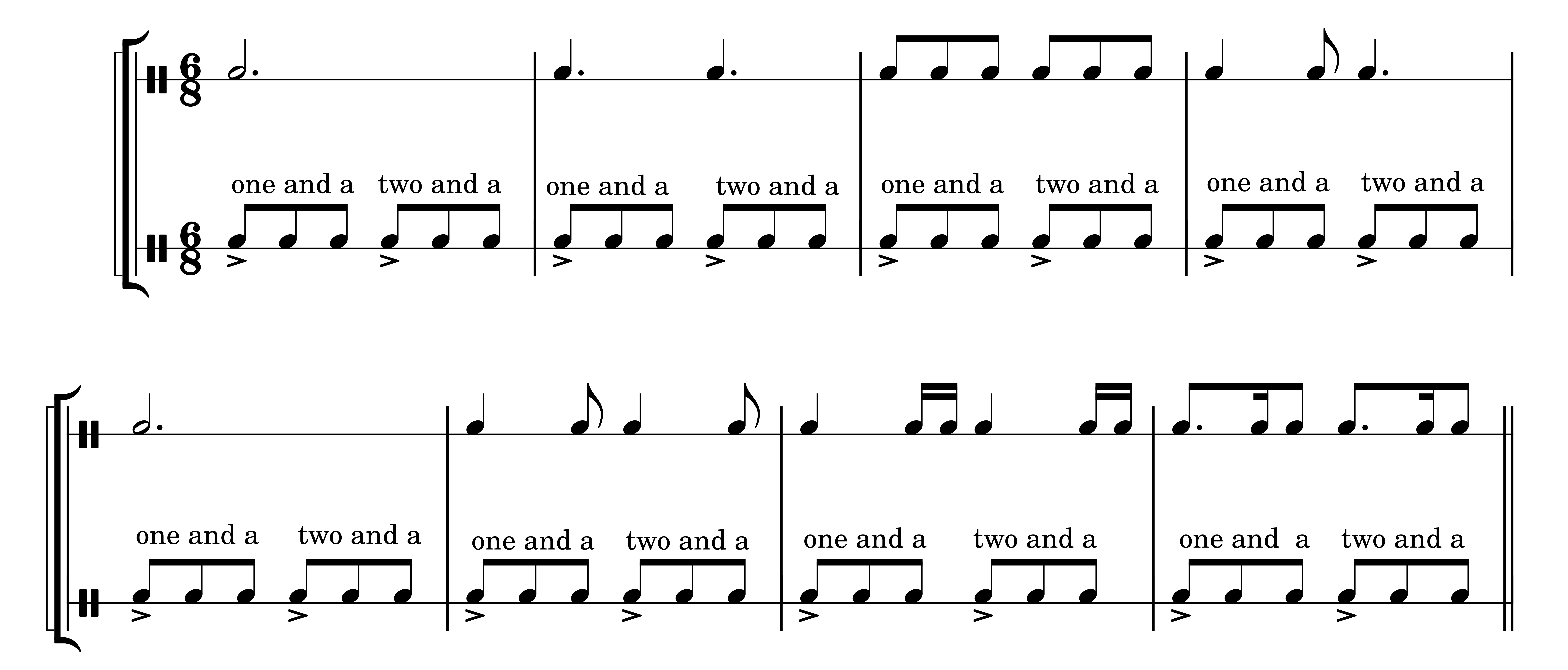Working With Intervals
24 Sight Singing Assignment
Warm-Up: Simple Intervals, Ascending and Descending
The instructor plays a starting pitch on the piano. The student should be prepared to sing any simple interval, ascending or descending, using the recommended solfege.
Compound Time: Rhythms
- Speaking and Clapping
Simultaneously clap the rhythm on the upper line of the staff while chanting the lower line. (Test yourself: can you also chant the upper line using the syllable “Tah” while you clap the lower line?)

2. Duets
Practice with a partner. Be prepared to perform either part. Conduct yourself in three for the first example, and in four for the second example. Chant rhythms using the syllable “Tah.”


Melodies in Compound Time, Major and Minor Keys, and C Clefs
Many learners find C clefs difficult, but they are no more difficult than treble or bass clef. The only way to become better at reading C clefs is…to do it a lot.
- Compound Duple Meters
“Row, Row, Row Your Boat” (English round)

Patrick Gilmore, “The Ants Go Marching”

“Jack and Jill” (English nursery rhyme)

2. Compound Triple Meters
Mary M. Macdonald, Bunessan

Johann Sebastian Bach, Jesu, Joy of Man’s Desiring, BWV 147

3. Compound Quadruple Meters
“Three Blind Mice” (English round)

Anne Campbelle MacLeod, “The Skye Boat Song”


